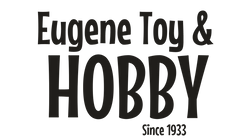
Details:
UP FEATURES:
- Large EMD plow
- Front ditch lights
- Nose headlights
Included in this run of UP SD60M's are both early and current versions. These locomotives were used in just about every service, hauling coal and fast intermodel, to drag freights and locals. As of a few years ago, a small batch were taken out of retirement, repainted and sent back out to work.
We are offering both as-delivered and current versions to satisfy UP modelers in different eras.
ROAD NUMBER SPECIFIC FEATURES:
#2442
- Post 2018 repaints with flag and wings scheme
- yellow sill
- modern PTC antenna setup
- Nathan M-3 horn.
#2457
- Post 2018 repaints with flag and wings scheme
- yellow sill
- modern PTC antenna setup
- Nathan M-3 horn.
#6317
- As-delivered appearance in 1993. Red-sill
- Leslie 3-Chime horn
- fire cracker antenna.
#6364
- As-delivered appearance in 1993. Red-sill
- Leslie 3-Chime horn
- fire cracker antenna.
etailed fuel tank with fuel fillers, fuel gauges, & breather pipes
SOUND EQUPPED MODELS ALSO FEATURE
- Onboard DCC decoder with SoundTraxx Tsunami2 sound
- Sound units operate in both DC and DCC
- Engine, horn, and bell sounds work in DC
- All functions NMRA compatible in DCC mode
- Precision slow speed control
- Program a multiple unit (MU) lashup with lead unit only horn, bell, and lights
- Many functions can be altered via Configuration Value (CV) changes
- CV chart included in the box
PROTOTYPE SPECIFIC INFORMATION
In 1984, EMD unveiled the first four SD60 demonstrator units. The SD60 was equipped with a 3,800 horsepower, 16 cylinder, turbocharged 710 engine. Five years later, EMD began offering the SD60 with the "safety" wide nose cab, thus creating the SD60M. Union Pacific was the first to acquire the SD60M followed by Burlington Northern, Soo Line, and Conrail. Conrail also ordered SD60I "isolated cab" versions. BN's SD60M's went to BNSF while Conrail's units were split between Norfolk Southern and CSX.
During the traffic crunch of World War II, ten more 4-8-4s of class FEF-3, numbers 835 through 844, were acquired. The FEF-3 boiler was slightly longer than the FEF-2; plus, the FEF-3 featured double exhaust stacks, cast pilots and cabinets on the tender. Within six months of delivery, they were fitted with "elephant ear" smoke deflectors. Several FEF-3s also received triple exhaust stacks.
All of the 4-8-4s were converted to burn oil after the Second World War. They also wore two-tone gray paint from April 1946 until the mid-1950s. While UP streamliners were all diesel powered, the FEFs worked the secondary trains such as the Pony Express and Overland as well as mail trains. At the time, those trains were usually quite long and consisted of heavyweight cars, requiring all of the power the FEFs could deliver.
Instead of retiring FEF-3 844 in the early 1960s, UP kept it for excursion service and renumbered it to 8444 to allow GP30 844 into the system by 1962. From the mid-1950s until 1987, FEF-3 8444 was painted in the black paint scheme. In September 1987, it was repainted into the two-tone gray scheme with yellow stripe and lettering. After returning to Cheyenne from the Los Angeles Union Station 50th Anniversary celebration in June 1989, FEF-3 8444 was renumbered back to 844. The two-tone gray paint lasted until September 1991.
